Search
Search Results
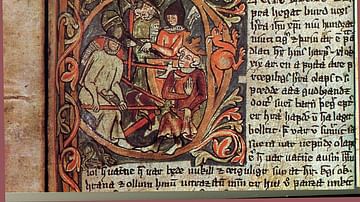
Definition
Saga
The Old Norse word saga means 'story', 'tale' or 'history' and normally refers specifically to the epic prose narratives written mainly in Iceland between the 12th- and 15th centuries CE, covering the country's history as well as Scandinavia's...
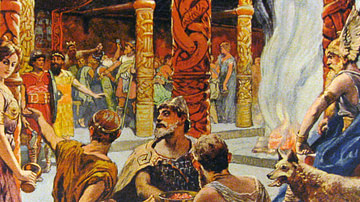
Definition
Norse Mythology
Norse mythology refers to the Scandinavian mythological framework that was upheld during and around the time of the Viking Age (c. 790- c. 1100 CE). Complete with a creation myth that has the first gods slaying a giant and turning his body...
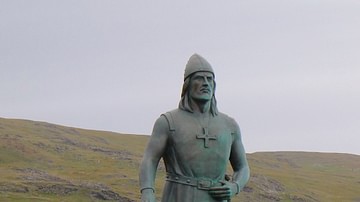
Article
Twelve Great Viking Leaders
The Viking Age (c. 790-1100 CE) transformed every aspect of the cultures the Norse came in contact with. The Vikings usually struck without warning and, in the early years, left with their plunder and slaves to be sold as quickly as they...
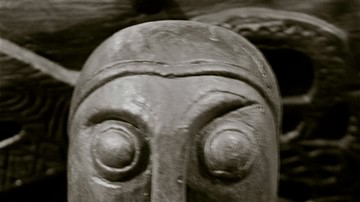
Definition
Vikings
The Vikings were originally diverse Scandinavian seafarers from Norway, Sweden, and Denmark (though other nationalities were later involved) whose raids and subsequent settlements significantly impacted the cultures of Europe and were felt...
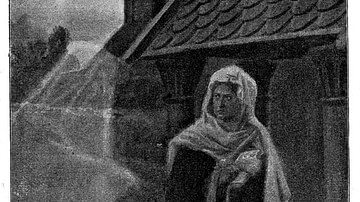
Article
Norse Ghosts & the Afterlife
The best-known vision of the Norse afterlife is that of Valhalla, the hall of the heroes where warriors chosen by the Valkyries feast with the god Odin, tell stories from their lives, and fight each other in preparation for the final battle...
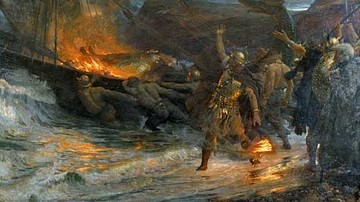
Article
Norse Ghosts & Funerary Rites
In Norse belief, the soul of the deceased might wind up in any one of a number of afterlife realms. There was Valhalla, the realm of Odin where the dead warriors drank, fought, and told stories, Folkvangr ('the Field of the People'), the...
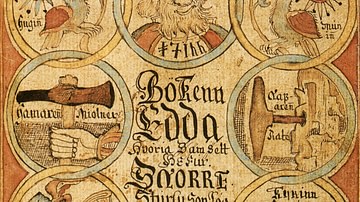
Definition
Edda
Edda is a term used to describe two Icelandic manuscripts that were copied down and compiled in the 13th century CE. Together they are the main sources of Norse mythology and skaldic poetry that relate the religion, cosmogony, and history...
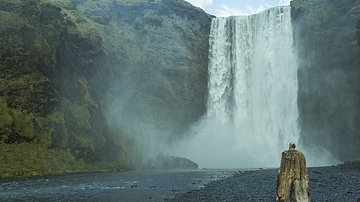
Article
The Legendary Settlement of Iceland
It is said that the early Norse settlers of Iceland in the Viking Age (c. 790-1100 CE) believed it was the home of the gods because of the tale of the creation of the world in Norse religion. In the time before time, the story goes, there...
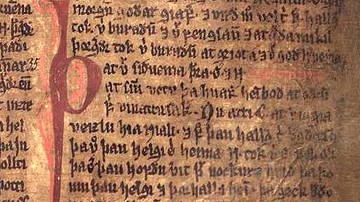
Image
Njals Saga in the Modruvallabok
Folio 13r, showing a page from Njáls saga, from the Möðruvallabók (AM 132), an Icelandic manuscript from c. 1330-1370 CE containing the most significant surviving collection of Sagas of Icelanders. It records some sagas in full or in part...
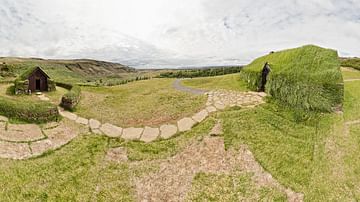
Article
Wealth & Power in Medieval Iceland
Early medieval Iceland, the Viking colony, was a democratic and egalitarian society, but the scarcity of resources and the rough environment created competition, where local chieftains resorted to different tactics to acquire wealth and money...